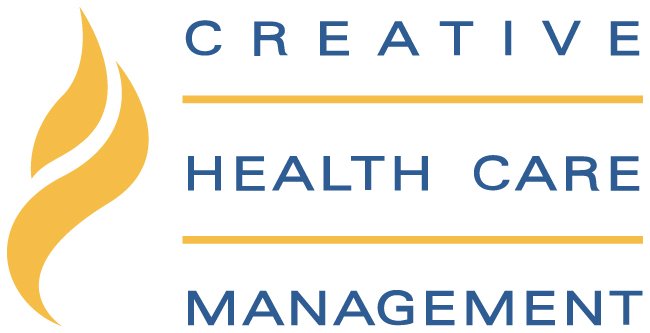In hospitals, around 30% of the workforce is composed of registered nurses, serving as a vital lifeline in the healthcare industry. Despite their significant influence, there is one role that often goes unrecognized: the chief nursing officer (CNO).
Chief nursing officers are the backbone of the entire nursing professionals and in hospitals across the country. A chief nursing officers work is a critical position that ensures the smooth functioning of the healthcare facility — streamlining decisions and providing leadership that resonates throughout the entire system. Their impact is far-reaching, playing a vital role in providing quality patient care, business administration and in nursing leadership.

What is a Chief Nursing Officer?
A chief nursing officer is part of a hospitals c-suite of top-level executives. The role of a chief nursing officer is complex and demanding within nursing administration in a healthcare organization, hospital, or clinical setting. They usually report directly to the organization’s chief executive officer.
THE CNO’s primary responsibility is to set standards of nursing care and to manage and oversee all nursing operations across all medical units, ensuring that the nursing staff is operating efficiently and effectively.
CNO Duties
The CNO duties include strategic planning, policy development, and workforce management. They ensure that the nursing leadership is adequately trained, competent, and up-to-date with the latest medical practices and regulations.
In essence, a CNO is the highest-ranking nurse in a hospital. They serve as health services managers, responsible for driving quality care while nurturing a healthy and progressive work environment for the hospital administrators, registered nurse staff, and all who are a part of supporting nursing professionals within the hospital.

Requirements To Become a Chief Nursing Officer
The first step to become a chief nursing officer is to have a Bachelor’s degree in Nursing (BSN). This foundational degree provides an in-depth understanding of patient care, healthcare systems, and medical procedures.
Typically, a chief nursing officer must hold an advanced nursing degree. Candidates for a nurse executive position also often need at least a Master’s Degree in Nursing (MSN) or a related field, with many organizations preferring a Doctorate in Nursing Practice (DNP).
In addition to formal education, often an aspiring CNO takes extra courses or certifications. A popular certification offered through the American Nurses Credentialing Center (ANCC) is the Nurse Executive certification (NE-BC).
Passing the National Council Licensure Examination and becoming a registered nurse is also a standard requirement. Moreover, chief nursing officers usually have extensive experience in actually working as a nurse in various positions and a record of progressing through various leadership roles as nurse leaders.
In the U.S., what is the typical compensation for a Chief Nursing Officer (CNO)?
As of August 27, 2023, the median chief nursing officer salary stands at $254,630 annually. However, this figure can fluctuate between $217,660 and $296,110, contingent upon various determinants. These factors encompass educational background, relevant certifications, specific skills, and the duration of one’s career in the field.

Key Responsibilities of Chief Nursing Officers
A chief nursing officer’s responsibilities are varied and extensive, reflecting the breadth and depth of their role within the healthcare organization. These can range from organizational and administrative tasks to nursing management and nurse leadership duties.
Setting Standards of Care:
Chief nursing officers are responsible for defining and implementing the standards of nursing care within the organization.
Nursing Operations Management:
They oversee the day-to-day operations of the nursing department, ensuring efficiency and effectiveness in delivering excellent patient care.
Policy Development:
They play a pivotal role in developing policies related to patient care standards and nursing practices.
Workforce Management:
The chief nursing officer oversees staffing, education, and training or onboarding new nurses to ensure the nursing staff is competent and up-to-date with the latest medical practices.
Budget Management:
They manage the budget of the nursing department, making sure resources are used efficiently.
Integration of Medical Technologies:
The CNO is also responsible for integrating new medical technologies into nursing practices.
Strategic Planning:
They contribute to the strategic planning of the healthcare organization, often focusing on the nursing department’s long-term goals and objectives.
Staffing Decisions:
They make critical decisions about hiring, training, and scheduling nursing staff.
Patient Care Decisions:
Chief nursing officers make decisions about patient care policies, nursing procedures, and standards.
A Typical Day for CNOs
A day for a chief nursing officer might involve a mix of administrative meetings, direct supervision of nursing staff, and strategic planning sessions. Often, they start by reviewing patient reports and nursing schedules to ensure optimal care delivery for the day, adjusting the schedules as necessary.
They may then attend budget meetings, where they make essential decisions about resource allocation. Chief nursing officers work closely with various colleagues — including physicians and other health administration staff — to discuss and strategize on improving quality of care for patients and staying abreast of the latest regulations or other medical technology used.

Effect of Chief Nursing Officers on Nursing Leadership in Hospital Systems
The effects of the decisions and actions of a chief nurse executive or nursing officer is felt beyond the nursing department. As nursing leaders, chief nursing officers play a significant role in keeping hospital systems running smoothly.
Industry Professionals
The chief nursing officer’s choices directly shape the nursing professionals’ working conditions, professional development opportunities, and overall morale. Chief nursing officers who prioritize continuous education, for instance, cultivate a culture of lifelong learning. They can also implement policies that promote work-life balance, enhancing job satisfaction and reducing burnout rates amongst nurses.
By setting a high standard for patient care and evidence-based practice, they motivate nurses to develop the skills needed to provide safe and effective treatments. Through their own nursing expertise, they also serve as mentors and teachers to other nurses, helping them hone their clinical and relational skills.
By providing support to nurses, CNOs also help medical professionals create an environment where they can do their best work. This fosters an atmosphere of collaboration and respect between nurses and other healthcare professionals, allowing the medical facility to run more efficiently.
Senior Management and Healthcare Organizations as a Whole
At the hospital level, the chief nursing officer’s decisions can impact everything from patient satisfaction to operational efficiency. As an example, a CNO who emphasizes patient-centered care can improve patient outcomes and satisfaction rates, which in turn enhances the hospital’s reputation and financial performance.
Creating a collaborative healthcare environment, a chief nursing officer can increase interdepartmental cooperation, leading to more seamless care delivery and improved efficiency across the board shaping the health, vitality, and success of health care systems.
Creative Health Care Management and Chief Nursing Officers
Chief nursing officers are an invaluable asset to the healthcare industry. Creative Health Care Management works with CNOs and together have an undeniable impact not only on the work environment of nurses, but also on patient care standards.
Magnet® or Pathway to Excellence® designations or redesignations are just one of the ways CHCM assists Chief Nursing Officers fulfill their vision for their healthcare system. Since CNO’s make a wide range of decisions that affect nurse managers, the nursing department performance and the hospital as a whole, often we consult on programs ranging from Shared Governance, Competency, Leading an Empowered Organization, Relationship-Based Care® and Re-igniting the Spirit of Caring.
CHCM and a chief nursing officer can create a culture of excellence within the nursing department and throughout the hospital system.
MAGNET®, Magnet Recognition Program®, ANCC Magnet Recognition®, Journey to Magnet Excellence®, Pathway to Excellence® Program, Pathway to Excellence in Long Term Care®, Demographic Data Collection Tool®, DDCT®, Practice Transition Accreditation Program® (PTAP) are registered trademarks of the American Nurses Credentialing Center (ANCC). The products and services of Creative Health Care Management are neither sponsored nor endorsed by ANCC. All rights reserved. The content presented in here is the expressed opinion of the author/presenter and not that of the American Nurses Credentialing Center (ANCC).
Sources:
https://nursingcecentral.com/the-importance-of-a-chief-nursing-officer-role/
https://www.wgu.edu/career-guide/healthcare/chief-nursing-officer-career.html
https://nursejournal.org/careers/chief-nursing-officer/
https://www.indeed.com/career-advice/finding-a-job/chief-nursing-officer-vs-director-of-nursing
https://www.salary.com/research/salary/alternate/chief-nursing-officer-cno-salary


